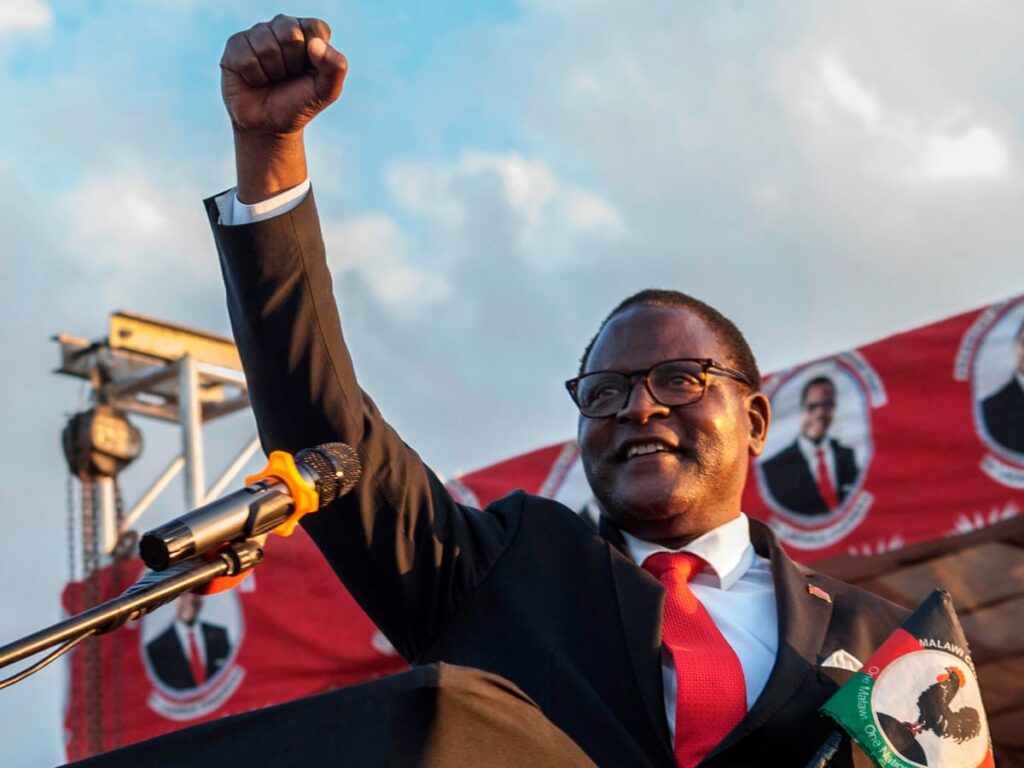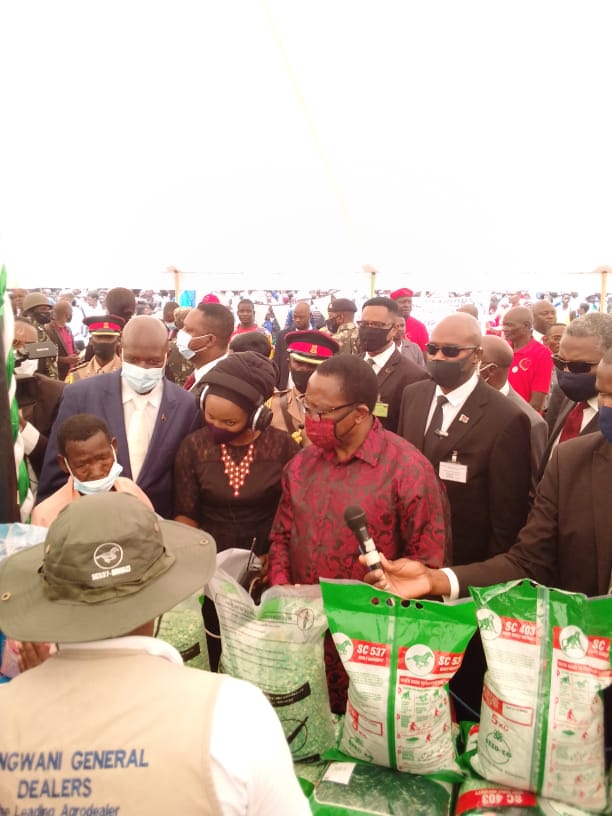
INTRODUCTION
Malawi’s President Lazarus Chakwera was not under any illusion that running the Southern African country would be an easy task, he knew the challenges that lied ahead of him. In fact, in his inaugural speech, he said: “The national bones we have dislocated cannot be corrected without suffering. In our quest to heal our fractured nation and governance system over the next five years, we must have the courage to face and endure the pain of systemic surgery if we ever want to enjoy wholeness as a nation. We must have the courage to inflict necessary pains on the fractured attitudes and actions of those around us if we ever want to see them whole as citizens.”
This was a befitting analogy because in surgical parlance, pain is always associated with healing; one must endure pain in order to make full recovery. President Chakwera knows that Malawians’ expectations are very high, and the servant leader also knows that Malawians are expecting a quick fix.
TIGHTENING BELTS
This is the reason why on his return from his recent international trip, President Chakwera took it upon himself to remind Malawians to tighten their belts as he goes about the momentous task of fixing the country. President Chakwera reiterated that things will probably get worse before they get better. There will be pain before we begin to experience gain.
In order to fully understand President Chakwera’s work of fixing this country economically, it is important to think about where the country is coming from in the context of multiparty democracy.
This is also a fact that is not lost on President Chakwera because in the same inaugural speech, he said: “It is no secret that for 26 years we have had one administration…promising prosperity but delivering poverty; promising nationalism but delivering division; promising political tolerance but delivering human rights abuses; promising good governance but delivering corruption; promising institutional autonomy but delivering state capture.”
THE MULUZI ERA
Bakili Muluzi, Malawi’s first multiparty President, came with pomp and high promise but ended up a failure. His 10-year reign is largely considered as a lost decade which was characterized by too much talk but very little delivery.
Corruption was rampant and so was factionalism, cronyism and nepotism. State sponsored political gangs calling themselves the ‘Young Democrats’ roamed the streets and terrorized political opponents, willy-nilly. Police left them alone, they were ‘untouchables’. The country degenerated into near anarchy.
FIRST MUTHARIKA ERA
When Bakili Muluzi failed to change the Constitution to rule Malawi for a third term, he brought the late Bingu wa Mutharika, who also started well but ended up badly after clashing with Malawi’s traditional donors. During Dr. Bingu Wa Mutharika’s reign, the country fell to its knees economically.
Fuel became a scarce commodity and sights of people carrying buckets looking for fuel were all over the small nation. He also clashed with his own people resulting in the police shooting dead 20 demonstrators. He died in office of cardiac arrest.
JOYCE BANDA – FIRST WOMAN PRESIDENT
When Joyce Banda became President in 2012 following the sudden death in office of Mutharika, so many Malawians thought a woman would be a breath of fresh air. They could not have been more wrong. JB, as she was popularly called by her admirers, presided over CASHGATE, perhaps the worst form of corruption and public resources abuse that this country has ever experienced.
People got rich unexpectedly, and cash began to pitch up in people’s car boots under mysterious circumstances at Capital Hill. At the height of her reign, she sold the country’s only presidential jet to who-knows-where, and up to now the circumstances surrounding the sale are still hazy. Donors fled, and when she lost power in 2014, she ran away to the United States of America allegedly fearing arrest.
ENTER SECOND MUTHARIKA
For Peter Mutharika, Malawians are the best judges, and perhaps the reason why we are here having this conversation.
GLOBAL MARKET FORCES
President Chakwera knows that perception can be a dangerous animal in politics, and that oftentimes, political adversaries use perception to dismantle opponents. President Chakwera knows the opposition would use various means to cultivate negative perception of the country’s leadership among the people.
Unfortunately, this is the monster that President Chakwera will have to confront sooner rather than later, and could be the watershed moment that defines the rest of his presidency.
For example, the world is currently facing an unprecedented crisis of rising prices of commodities including food and fuels. The trend has largely been triggered by the Covid-19 pandemic, whose negative economic ripple effects are still reverberating across our neighbourhoods today.
Fuel prices have sharply risen across the world. Just recently, South Africa, Zambia, Namibia and Botswana raised their pump prices in tandem with global trends, thus triggering corresponding increases in the prices of basic commodities in their countries.
Market forces at global level are directly impacting domestic price trends. These countries are Malawi’s major trading partners, and Malawians must also remember that Malawi imports more than what it exports.
Malawi is highly dependent on imports hence high susceptibility to global market forces. There is no way Malawi would avoid catching that ‘cold’ for the simple reason that they are a member of the global community.
Not that opposition politicians do not know this. They know. In fact, they know that the trend would have been the same regardless of who was at State House.
But in perhaps a trend in politics, vested interests have the tendency of usurping logical thinking. Instead, they want to use this as an opportunity to make President Chakwera look like he has failed.
MIND-SET CHANGE
This is mostly how politics has always been practiced in Malawi, and President Chakwera knows that if he is to successfully fix the country, he must confront this reality and exorcize the demons of status quo. It is no easy task, which may explain why he appears to have adopted a multifaceted approach of not only bringing physical development to the people, but also development of the mind (one can choose to call it mind-set change).
Apart from looking for quick fixes, it is believed that Malawians are also to a greater extent bigoted with regional politics, something which some political leaders exploit to polarize the nation on political colours and regions. As someone who has spent much of his adult life ministering the word of God, President Lazarus Chakwera will probably succeed in his ‘double development’ approach because he knows too well how the mind works.
President Chakwera knows that the massive infrastructure development that he has already initiated in this country will not be complete if it does not go together with mind-set change. President Chakwera is urging Malawians to do away with the attitude of ‘what can my government do for me’ and instead adopt an attitude of ‘what can I do for my government’.
CONCLUSION
At the official launch of the 10-year implementation plan for the country, whose aim is to turn Malawi from one of the poorest countries in the world to a lower middle income country by 2030 (which is part of Malawi Vision 2063), President Chakwera said: “Anytime you hear another Malawian complaining about somebody else or a politician, you should ask them if they themselves have started reading the implementation plan. And if they themselves have started implementing it.”
These may look like gradual steps, but they are steps in the right direction. Malawi is now a huge construction site towards infrastructure development, so too is the Malawians’ collective mind as a country.







